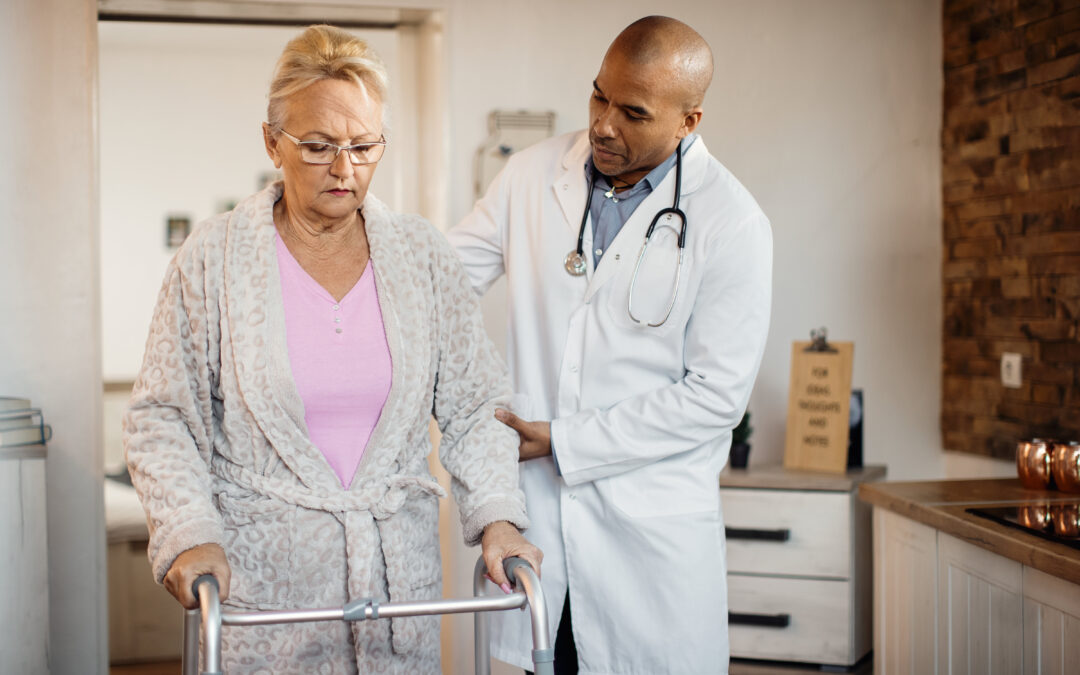Bone Health After Menopause: Tips to Prevent Osteoporosis
Strong bones, strong foundation—for life beyond menopause.
As women step into the post-menopausal stage of life, one often-overlooked area of health begins to demand attention: bone strength. With the natural decline in estrogen, bones can lose density rapidly—making women more vulnerable to osteopenia (bone thinning) and osteoporosis, a condition that weakens bones and significantly increases the risk of fractures.
But here’s the empowering truth: osteoporosis isn’t inevitable. With the right nutrition, movement, and lifestyle practices, you can take proactive steps to preserve your bone mass and protect your long-term mobility, strength, and independence.
At Vitalis Origin, we believe that knowledge is the first step to prevention—and that strong bones are a powerful symbol of a strong woman. Here’s what you need to know.
Why Menopause Affects Bone Health
Estrogen plays a vital role in maintaining bone density by supporting the bone remodeling process—where old bone is broken down and replaced by new bone. After menopause, the sharp drop in estrogen accelerates bone loss. Women can lose up to 20% of their bone density in the 5–7 years following menopause.
Without intervention, this can lead to brittle bones, spinal compression fractures, and an increased risk of hip or wrist fractures from minor falls.
How to Strengthen Bones and Prevent Osteoporosis After Menopause
1. Get Enough Calcium—But the Right Kind
Calcium is essential for building and maintaining strong bones, but many women don’t get enough through diet alone.
Daily goal:
1,200 mg of calcium per day (from food + supplements combined)
Best sources:
-
Leafy greens (collards, kale, bok choy)
-
Fortified plant-based milks
-
Almonds, chia seeds, tofu
-
Sardines or canned salmon (with bones)
⚠️ Tip: Calcium is best absorbed in smaller doses throughout the day. Avoid taking more than 500 mg at once.
2. Don’t Forget Vitamin D
Vitamin D helps your body absorb calcium. Without it, even a high-calcium diet may fall short.
How to get it:
-
Sunlight (15–20 mins a few times a week, depending on skin tone)
-
Fatty fish (salmon, mackerel)
-
Fortified foods
-
Supplements (aim for 800–1,000 IU daily, or as directed by your healthcare provider)
Many women are deficient, especially in cooler climates or during winter. Get your levels tested and supplement as needed.
3. Incorporate Weight-Bearing & Resistance Exercise
Exercise isn’t just for heart health or mood—it’s crucial for bone health.
Best bone-building exercises:
-
Weight-bearing cardio: Walking, hiking, dancing, stair climbing
-
Strength training: Resistance bands, free weights, or bodyweight exercises like squats and lunges
-
Balance training: Yoga, tai chi, or stability ball exercises to prevent falls
⚠️ Consistency matters. Aim for at least 2–3 strength sessions per week and daily movement when possible.
4. Limit Bone-Depleting Habits
Certain lifestyle factors accelerate bone loss, including:
-
Excessive alcohol (more than 1 drink/day)
-
Smoking
-
High caffeine intake (especially without adequate calcium)
-
Sedentary lifestyle
-
High sodium diets, which can cause calcium loss through urine
Moderation and mindfulness can go a long way in preserving your bone integrity.
5. Consider Natural Support with Supplements
While food is foundational, targeted supplements can help you fill in the gaps—especially as absorption becomes less efficient with age.
Look for:
-
Calcium citrate or hydroxyapatite (more absorbable forms)
-
Vitamin D3
-
Vitamin K2 – helps direct calcium into bones and out of arteries
-
Magnesium – supports calcium metabolism
-
Boron, zinc, and manganese – trace minerals essential for bone formation
At Vitalis Origin, our formulas are designed with your post-menopausal needs in mind—supporting not just bones, but whole-body wellness as you thrive through this next phase of life.
6. Get a Bone Density Scan (DEXA)
If you’re postmenopausal and haven’t had a DEXA scan, ask your healthcare provider. This quick, painless test measures bone mineral density and provides a baseline for tracking changes over time.
Early detection of bone loss allows you to take action before serious problems develop.
Your Bones Tell a Story—Make It a Strong One
Strong bones are about more than structure—they’re your foundation for staying active, independent, and joyful as you age. By nourishing your body with the right nutrients, staying active, and embracing a proactive approach to wellness, you can significantly reduce your risk of osteoporosis and keep moving confidently into the years ahead.
At Vitalis Origin, we’re here to support you with knowledge, empowerment, and natural solutions to help you live stronger, longer.

